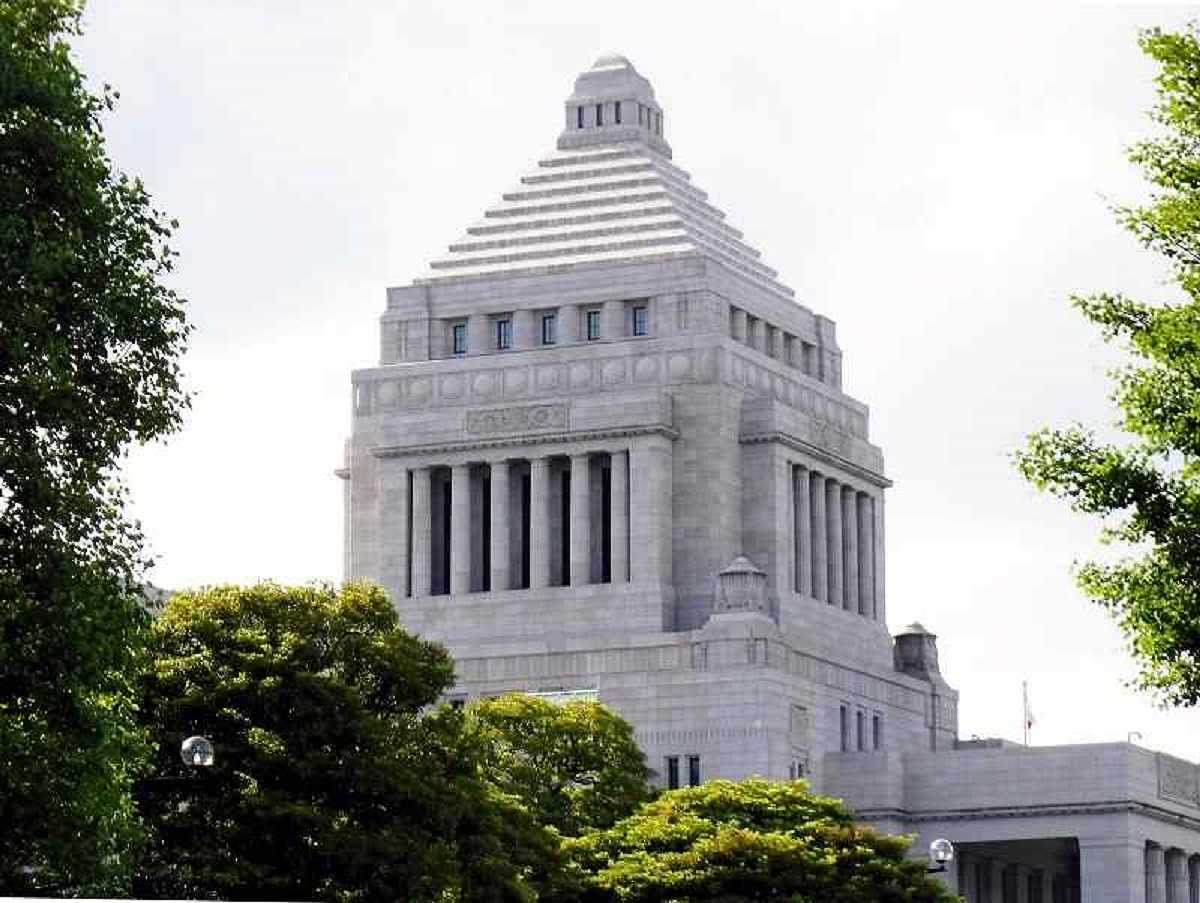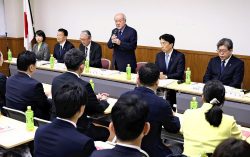
The Diet Building in Chiyoda Ward, Tokyo, Japan.
17:33 JST, May 31, 2023
TOKYO (Jiji Press) —The Diet on Wednesday enacted legislation to allow the extension of nuclear power reactors’ life span beyond the current limit of 60 years to ensure stable electricity supplies and realize a decarbonized society.
The legislation was approved at a plenary meeting of the House of Councillors, the upper chamber of the Diet, by a majority vote with support from the ruling Liberal Democratic Party, its coalition partner, Komeito, and opposition Nippon Ishin no Kai (Japan Innovation Party). The House of Representatives, the lower chamber, passed the legislation in late April.
The “green transformation” legislation on promoting the use of carbon-free energy relaxes the current rule that sets the operating life of nuclear reactors at 40 years in principle, which can be extended to up to 60 years. Japan introduced the limit after an unprecedented triple meltdown at Tokyo Electric Power Company Holdings Inc.’s disaster-hit Fukushima No. 1 nuclear power plant in northeastern Japan in March 2011.
The government aims to maximize the use of nuclear power stations while concerns persist over extended operations of reactors that may cause their degradation over time.
The legislation revised five relevant laws, including the electricity business law, the nuclear reactor regulation law and the nuclear energy basic law.
The rule on reactor operating life, stipulated under the reactor regulation law, is now stated in the electricity business law as well. Under the laws, power companies can operate reactors for over 60 years by excluding periods during which they are suspended for reasons such as safety inspections.
In the reactor regulation law, the government newly included safety regulations for aged facilities, such as the introduction of a system in which reactors must undergo inspections by the Nuclear Regulation Authority and receive its approval for continued operations every 10 years after the first 30 years of operation.
The revised nuclear energy basic law newly spells out that the government has a responsibility to ensure stable electricity supplies and create a decarbonized society through the utilization of nuclear power.
Top Articles in Politics
-

Japan PM Takaichi’s Cabinet Resigns en Masse
-

Sanae Takaichi Elected Prime Minister of Japan; Keeps All Cabinet Appointees from Previous Term
-

Japan’s Govt to Submit Road Map for Growth Strategy in March, PM Takaichi to Announce in Upcoming Policy Speech
-

LDP Wins Historic Landslide Victory
-

LDP Wins Landslide Victory, Secures Single-party Majority; Ruling Coalition with JIP Poised to Secure Over 300 seats (UPDATE 1)
JN ACCESS RANKING
-

Producer Behind Pop Group XG Arrested for Cocaine Possession
-

Japan PM Takaichi’s Cabinet Resigns en Masse
-

Man Infected with Measles Reportedly Dined at Restaurant in Tokyo Station
-

Israeli Ambassador to Japan Speaks about Japan’s Role in the Reconstruction of Gaza
-

Videos Plagiarized, Reposted with False Subtitles Claiming ‘Ryukyu Belongs to China’; Anti-China False Information Also Posted in Japan






















